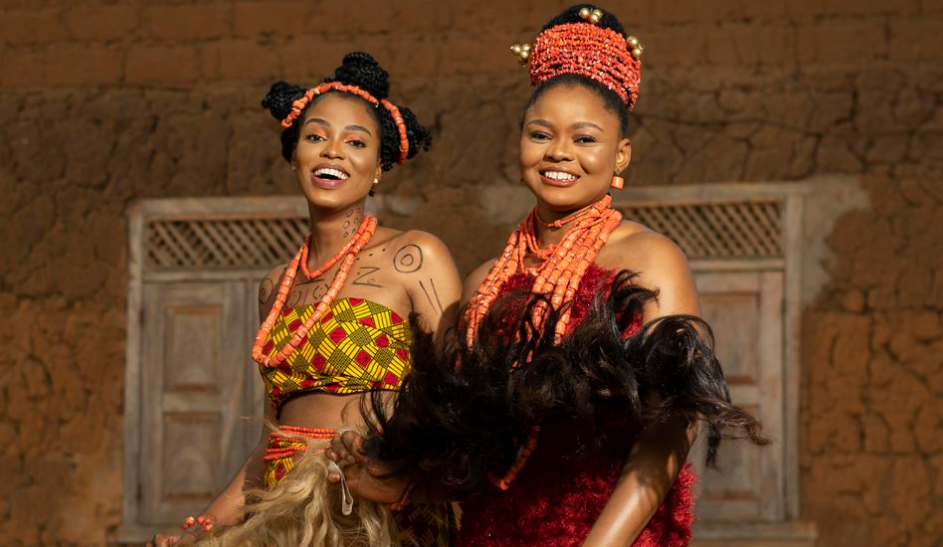
There are some parts of Igboland where a woman is culturally permitted to marry a wife in the traditional way.
While this practice was prevalent during the pre-colonial era, it still exists today, however not as pronounced as before.
The procedure follows the typical Igbo traditional marriage customs.![Bible verses of hope [iStock]](https://image.api.sportal365.com/process//smp-images-production/pulse.ng/16042025/2b3bae73-c04f-4e13-bb1d-387ee071379e.jpg?operations=autocrop(340:210)) The woman, who will become the husband, informs the Ummuna of her decision to marry a wife.
Once there’s an agreement, she goes with her people to meet the people of her wife-to-be to indicate her interest in marrying their daughter.
This act is regarded as the formal introduction and it is called ikụ aka n’ụzọ.
Then the bride’s family accepts the proposal and proceeds to draw up a list of items that will be received as bride price.
The female husband-to-be, along with her male kindred (who can sometimes be her husband and his people), take their time to get every single item on the list including yams, snuff, and wrappers, not leaving anything out.
As this is going on, each family conducts a thorough background check to assess the other’s lineage for any history of mental illness, criminal behaviours, or ostracism. This process is called ijụ ajụjụ.
After that, the bride price is paid in full, an act known in Igboland as ịkwụ ụgwọ isi nwanyi.
Once that is completed, the head of the village or community blesses the marriage as the new female husband and female wife hold hands with a respected male figure in the family or the husband of the female husband.
The new female wife then leaves her clan to start a new life with her female husband. She is expected to bear kids for the female husband while the female husband provides for her as in the traditional sense of marriage.
This practice is considered a legitimate aspect of Igbo culture despite being condemed by contemporary and pre-colonial European ideals.
It was commonly practised in those days for various reasons including:
The woman, who will become the husband, informs the Ummuna of her decision to marry a wife.
Once there’s an agreement, she goes with her people to meet the people of her wife-to-be to indicate her interest in marrying their daughter.
This act is regarded as the formal introduction and it is called ikụ aka n’ụzọ.
Then the bride’s family accepts the proposal and proceeds to draw up a list of items that will be received as bride price.
The female husband-to-be, along with her male kindred (who can sometimes be her husband and his people), take their time to get every single item on the list including yams, snuff, and wrappers, not leaving anything out.
As this is going on, each family conducts a thorough background check to assess the other’s lineage for any history of mental illness, criminal behaviours, or ostracism. This process is called ijụ ajụjụ.
After that, the bride price is paid in full, an act known in Igboland as ịkwụ ụgwọ isi nwanyi.
Once that is completed, the head of the village or community blesses the marriage as the new female husband and female wife hold hands with a respected male figure in the family or the husband of the female husband.
The new female wife then leaves her clan to start a new life with her female husband. She is expected to bear kids for the female husband while the female husband provides for her as in the traditional sense of marriage.
This practice is considered a legitimate aspect of Igbo culture despite being condemed by contemporary and pre-colonial European ideals.
It was commonly practised in those days for various reasons including:
- To allow menopausal women bear children;
- To bestow high social status on women who had attained economic success;
- To prevent women from losing their husband’s inheritance.
![[Freepik]](https://image.api.sportal365.com/process//smp-images-production/pulse.ng/21052025/b948427c-dfbe-403a-92b8-302ca8d981d9.jpg?operations=fit(1042:))
Women who were unable to bear their own children throughout their childbearing years used this practice to marry younger women as wives who can bear them children and continue their family lineage.
Also, women who were successful and had wealth acquired wives as a status symbol and to command respect within the society, similar to how traditional men in those days often got married to multiple women to show off their wealth and gain social standing.
Which parts of Igboland permit woman-to-woman marriage?
These are the prominent areas across Igboland where this practice is legitimised:
- Nnewi
- Ngwa clan in Abia State
- Okrika in Rivers State
However, this practice is not unique to the Igbo people of the South East alone. It also occurs among the Kalabari people in the Niger Delta region and among several groups in Ghana, including the Akan, Fante, Lobi, Baga and Nankani.


![[Freepik]](https://image.api.sportal365.com/process//smp-images-production/pulse.ng/21052025/b948427c-dfbe-403a-92b8-302ca8d981d9.jpg?operations=fit(1042:))




